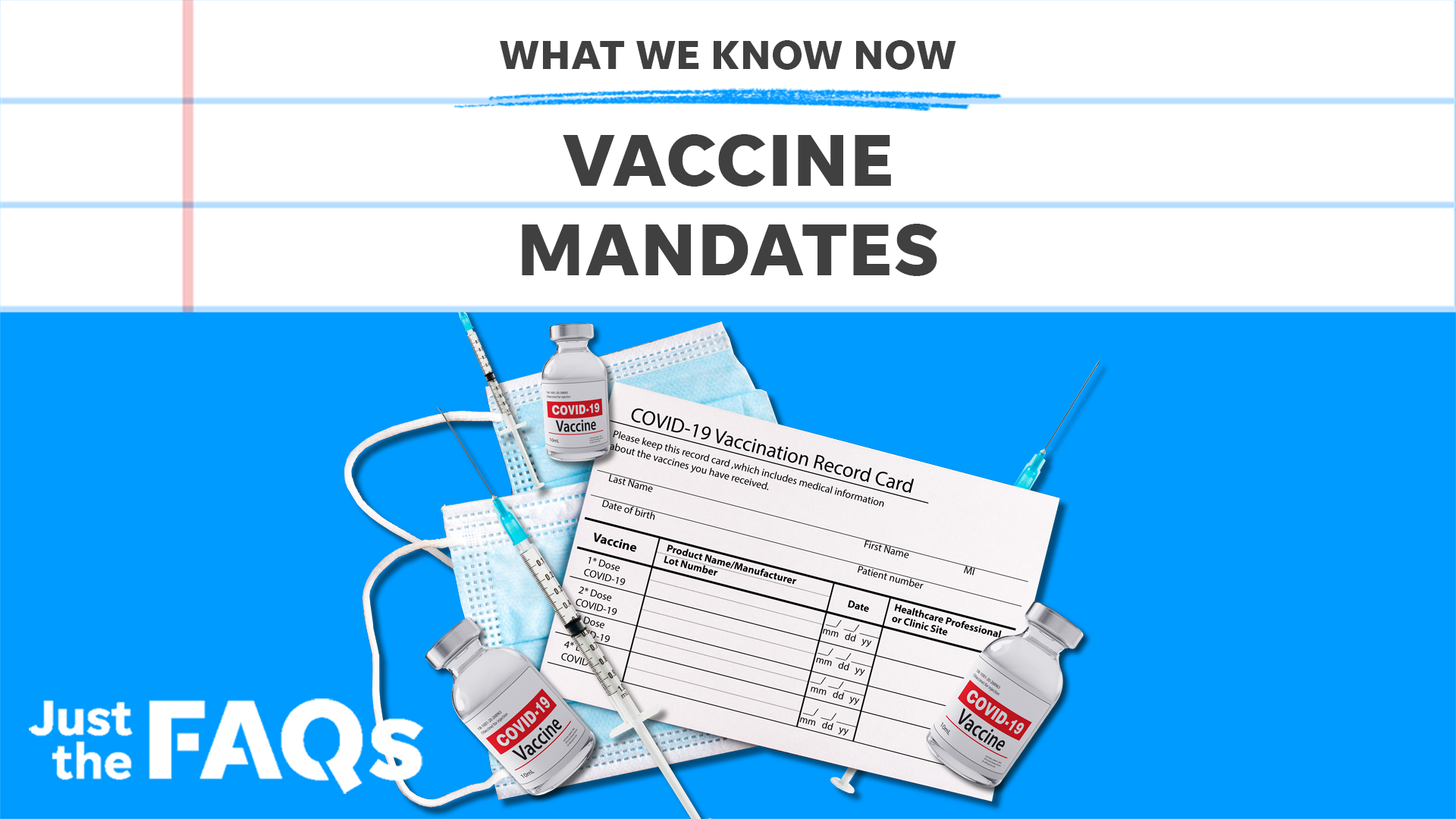Experience, education ... COVID vax status? More job candidates put it on their resumes.

- According to a survey of 1,250 hiring managers in August by ResumeBuilder.com, 63% of companies are requiring COVID-19 vaccinations for staffers.
- LinkedIn says 4% of its job postings require vaccination, while Indeed says 5.4% of its ads do -- up from about 1% in September.
As a near-record number of Americans switch jobs each month, they’re wrestling with a dilemma that has nothing to do with the employment gap created by a pandemic-related layoff.
The question, borne of our unprecedented COVID-19 era: Should you include your vaccination status on your resume?
The short answer: It probably won’t hurt and could help you land a position.
As a result, a growing number of vaccinated job candidates are acknowledging that status on their resumes, career and resume advisors say.
The question is a thorny one because vaccinations themselves have become somewhat controversial.
HOW DOES COVID-19 AFFECT ME? Don’t miss an update with the Coronavirus Watch newsletter
“It could be a dangerous precedent – you’re putting health information on a resume,” says Lisa Rangel, CEO of Chameleon Resumes, a resume and job search consulting service.
Then there’s the question of whether the move will be a boost or hindrance to your chances of getting hired.
In September, President Joe Biden ordered all businesses with 100 or more employees to ensure their workers are vaccinated or tested at least weekly but the mandate has been temporarily halted by a federal appeals court.
Still, 63% of companies are requiring COVID-19 vaccinations for staffers, according to a survey of 1,250 hiring managers in August by ResumeBuilder.com. About 84% of adults 18 and over are fully vaccinated, according to the Centers for Disease Control and Prevention.
At the same time, the public has been divided. In August, 49% of Americans favored vaccination mandates and 46% were opposed, a CNBC survey shows.
In most cases, job candidates who affirm they’re vaccinated should have an edge over unvaccinated competitors, says Andrew Challenger, senior vice president of Challenger, Gray & Christmas, an outplacement firm.
But, “In (mostly Republican) states with low vaccination rate and legislation that bans vaccine mandates, an unvaccinated status may be better branding for a job seeker,” Challenger says.
Of course, if a job candidate knows the company she’s targeting is requiring proof of vaccination, it’s best to include it on the resume, Rangel says.
SOARING VACANCIES: Job openings hover near all-time highs as Great Resignation shows little sign of easing
Leaving it off shouldn’t be a deal-breaker, Rangel says. A potential employer will eventually ask if the applicant has been inoculated during interviews or onboarding, she says.
“We tell candidates that the first priority with a resume should always be skills and potential fit for the role,” says Rich Deosingh, a district president for Robert Half staffing in Manhattan. As for vaccine status, “Do what is going to make you comfortable but know that the conversation will likely be had during the interview process.”
Yet if you’re bombarding dozens or hundreds of employers with resumes, including your vaccination status will probably work in your favor, according to surveys and job search officials.
“HR people don’t like to ask about it,” Challenger says. “If you can circumvent that, it makes you a more attractive candidate.”
WORKERS GAIN LEVERAGE: Starbucks store votes to unionize, becoming first company location to do so in the U.S.
Sixty-three percent of the hiring managers polled by ResumeBuilder.com preferred seeing a candidate’s vaccination status on the resume. And a third said they automatically weed out applicants who don’t include it.
And while 53% of hiring managers are more likely to hire a more qualified candidate even if they’re unvaccinated, 47% would choose the vaccinated but less qualified applicant.
In other words, some unvaccinated candidates could be screened out before they get their foot in the door, Rangel says, especially for lower-skill positions. With worker shortages widespread in the U.S., employers may be slower to immediately rule out qualified unvaccinated candidates for higher-skill roles, she says.
“It’s pretty clear that if you are going to have to disclose your status…then you might as well put it on your resume to improve your chances of getting the job,” says Mike Gardon, CEO of CareerCloud, a resume writing and job search coaching service.
No one tracks the share of all resumes listing vaccination status but Gardon estimated it’s “perhaps 20% of the resumes we’ve seen.”
Rangel says about a third of her clients ask her to add the fact that they’ve been vaccinated to their resumes.
In job postings, fewer employers are requiring proof of vaccination but the share is growing. LinkedIn says 4% of postings require vaccination. Job site Indeed says 5.4% of its ads do, up from about 1% in September.